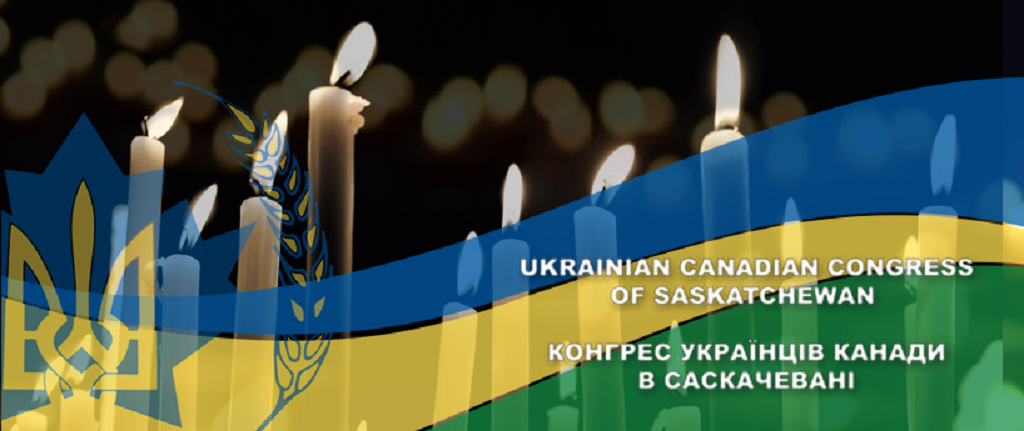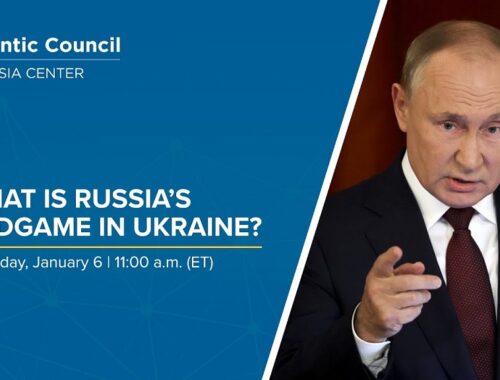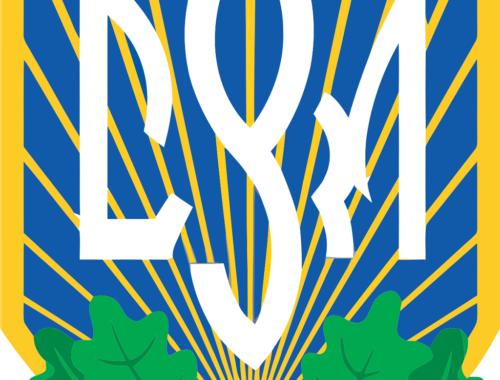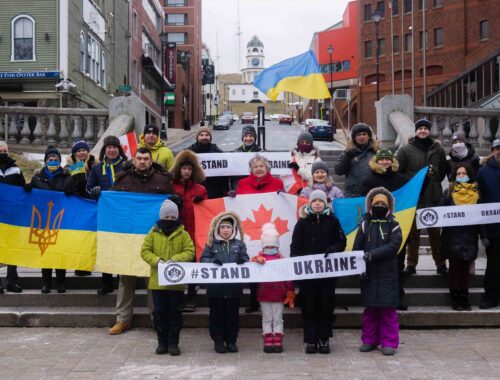
UCC Saskatchewan presents 2020 annual report
In 2020, webinars became one way for staff and volunteers of UCC Saskatchewan to engage with community members.
“How does the Ukrainian Canadian Congress of Saskatchewan build a strong, culturally vibrant Ukrainian community in Saskatchewan, during a pandemic? You embrace technology, you stay connected, and you remain flexible as an organization,” said President of UCC Saskatchewan John Denysek in UCC Saskatchewan’s annual report.
The report was released on November 10, after the Ukrainian Canadian Congress held its annual general meeting on November 6.
UCC Saskatchewan branch embraced technology with many of their programs and services as they switched from in-person to virtual delivery. Zoom meetings became the norm, as did online classes for language learning.
“The board went from quarterly meetings to monthly Zoom meetings so that we could better respond to situations on a timely basis,” the report said.
At the start of the pandemic, the Branch’s major focus was on translating government information on COVID into Ukrainian, so that those whose first language is Ukrainian were also up to date on all developments and public health directives.
“Over 100 bilingual articles were circulated so that community members could have the tools they needed to support themselves and their families in the fight against COVID,” said UCC Saskatchewan’s Executive Director Danylo Puderak in the report.
In some cases, members have reported that their programs have an expanded reach because of being offered virtually. In other cases, members have lost their usual source of revenue generation and are now facing very difficult sustainability situations.
“By the fall, UCC Saskatchewan was distributing Special Pandemic Funding to applying member organizations,” Puderak said. “Over $35,500 was allotted to assist cultural groups adapt and cope with the enormous challenges the pandemic brought.”
2020 NATION BUILDERS AND COMMUNITY RECOGNITION AWARDS
In November, UCC Saskatchewan hosted an online event to announce the 2020 Nation Builders and Community Recognition honourees.
“This past year provided new challenges for all of us,” Lissa Gruza, Chair of the Standing Committee on Recognitions, said in the report. “In spite of pandemic restrictions, committee members met via Zoom conferencing and the process of obtaining, reviewing and selecting recipients for Nation Builders and Community Recognition Awards moved forward.
The submission and selection process was delayed by a couple of months as community members focused on coping with a pandemic rather than submitting nominations. UCC Sask. engaged CBC radio journalist Rosalie Woloski to conduct all the interviews. Woloski physically visited and socially distanced with recipients who were in Saskatoon and held conference interviews with those who lived outside the city.
“It is our hope that when our community is able to gather once again to celebrate, the 2020 and 2021 recipients will be honoured at an event similar to those held in past years,” Gruza said.
The event was launched on Sunday, November 1, 2020 at 1 pm. Puderak called it “a proud moment for both the honourees and UCC Saskatchewan”. Partial funding for this project was obtained from the Dr. Stephen & Micheline Worobetz Foundation.
COMMUNICATOR TRAINING PROGRAM
When most document translation and oral interpretation services had to switch to online in March 2020, UCC Sask. modified policies for document intake to allow for electronic processing of translations, their safe storage and return to clients. In-person interpretations were suspended for the first few months; the demand for these services dropped considerably. Since summer, the Branch has continued to offer over-the-phone interpretations in emergency situations or with any legal matters.
In May 2020 the Branch signed a five-year agreement with the Department of Immigration, Refugees and Citizenship Canada (IRCC) to develop and deliver a brand-new certification program – the Communicator program. This 40-hour program aims to raise the standards of community interpreting and translation services available in Saskatchewan. It provides a background in theoretical concepts, along with practical experience in service delivery.
The first cohort of 19 participants is scheduled to finish training in May 2021. Due to current COVID-19 restrictions, all training is taking place online for the first round (January – May 2021). The participants who successfully complete the program will become a part of the trainer pool, and go on to teach practitioners – community interpreters and translators—supporting the settlement sector in Saskatchewan.
At the beginning of 2020 Puderak introduced UCC Saskatchewan’s five-year strategic plan and its five priorities.
“Expectations were high and the momentum was building,” he said. “Little did we know at that time what awaited us in 2020.”
It has become clearer that the five priorities in the strategic plan are perceptive and more relevant today. They are to:
- Foster connection;
- Build long-term financial security;
- Implement an authentic diversity plan;
- Provide dynamic programs and services;
- Ensure strong branches that are regional community focal points.
“The work of UCC Saskatchewan is a personal passion of mine as I want to ensure a strong and vibrant Ukrainian community reflective of our evolving community for future generations,” President of UCC Saskatchewan John Denysek said.
One thing that has been consistent throughout the Ukrainian community in Saskatchewan is that all members are reporting how they miss the ability to get together for person-to-person contact.
“Given our history as Ukrainians, we are resilient, we are adaptable, and we will survive and thrive,” Denysek said.
This article is written under the Local Journalism Initiative agreement
Kateryna Bandura for New Pathway – Ukrainian News
Follow me on social media!You May Also Like

What endgame Russia plans for Ukraine?
January 11, 2022
CYM – Ukrainian Youth Association in Canada starts its yearly “Теплом зігріємо серця” campaign
October 20, 2021

